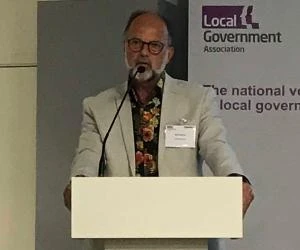GambleAware hails NHS problem gambling treatment plan

Problem gambling funding body GambleAware has welcomed government plans to invest in new specialist clinics dedicated to treating problem gambling in its new 10-year strategy for the National Health Service (NHS).
The NHS Long Term Plan, published this afternoon, features proposals for significant increases in spending on mental health services across England, supported by greater cooperation between regional and national health service bodies.
In the document, NHS England outlines plans to improve services offered to an estimated 400,000 problem gamblers, as well as a further 2m people classed as being at risk of developing a gambling addiction.
Significantly it proposes the launch of NHS specialist clinical services across the country.
“We will invest in expanding NHS specialist clinics to help more people with serious gambling problems,” the plan states. “Current treatment only reaches a small number through one national clinic. We will therefore expand geographical coverage of NHS services for people with serious gambling problems, and work with partners to tackle the problem at source.”
The only existing dedicated treatment centre is the London-based National Problem Gambling Clinic, which was opened more than a decade ago. A second facility, which will be operated in partnership between the Leeds and York Partnership NHS Foundation Trust and gambling addiction charity GamCare, will open in April this year.
Marc Etches (pictured), the chief executive of charity GambleAware, said the long-term strategy would help it to improve the services it offers those affected by problem gambling.
“For the past 10 years GambleAware has funded the National Problem Gambling Clinic at [the Central and North West London] NHS Foundation Trust and, as a charity, we are immensely proud of how the clinic has demonstrated the contribution the NHS can make to the treatment of gambling addiction,” Etches said.
“Too often, those with gambling addiction suffer in silence, which is why we will continue to work closely with the NHS to help make sure there are good links between the services we commission and those commissioned by the NHS.”
In the NHS Long Term Plan, NHS England has pledged to continue meeting the Lancet Commission on Global Mental Health recommendation of allocating at least 10% of health spending towards mental health services. NHS England said mental health will receive a growing share of the NHS budget, worth in real terms at least a further £2.3bn a year by 2023/24.
“This will enable further service expansion and faster access to community and crisis mental health services for both adults and, particularly, children and young people,” the plan states.
